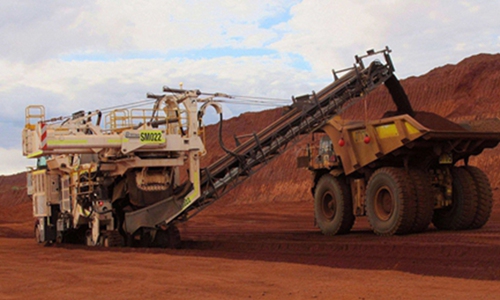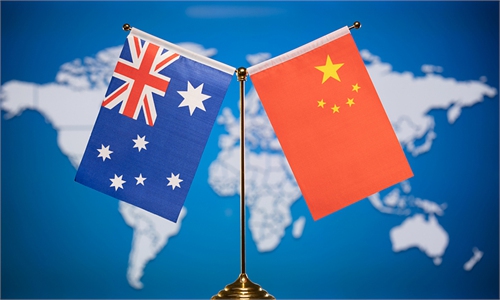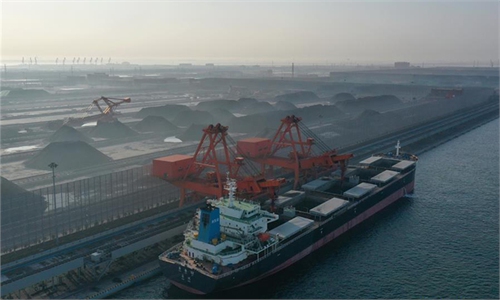SOURCE / INDUSTRIES
Ore futures surge on strong demand, Canberra tensions

An iron ore mining site in Australia Photo: cnsphotos
The frayed China-Australia relationship is behind a sudden peak in iron ore futures prices in China, and a Chinese commodity trading exchange has vowed to crack down on illegal futures trading, iron ore industry analysts said on Monday.
China's recovery from the COVID-19 epidemic has underpinned demand for steel and iron ore in recent months, but imported iron ore futures rose precipitously for three consecutive days last week, prompting Chinese steelmakers to flag the issue.
On Sunday, Luo Tiejun, vice chairman of the China Iron and Steel Association (CISA), told the Xinhua News Agency that prices of imported iron ore have been surging recently, far exceeding the expectations of Chinese steelmakers.
Luo said that the prices of imported iron ore recently soared because of human-induced market tensions, and called on authorities to intervene as soon as possible.
Following Luo's call, the Dalian Commodity Exchange said it will crack down on illegal trading.
Analysts said that steelmakers are struggling to make a profit, as steel prices are relatively unchanged from previous years' levels.
Mi Pengqi, a senior analyst at commodity information site 315i.com, said that frayed China-Australia trade ties have seen many Australian exports - from coal and wine to barley and beef - run into problems in China. This was one reason for recent price volatility in the futures market, said Mi.
Mi said the CISA and Dalian Commodity Exchange are flagging the issue and trying to prevent the margins of steelmakers from being eroded by iron ore exporters, although iron ore prices are likely to stay strong in the short term.
However, a source with Rio Tinto Group told the Global Times on Monday that recent changes in iron ore prices should have nothing to do with changes in China's iron ore imports from Australia, adding that the output of crude steel has reached a new high this year.
"The iron ore trade has not been influenced by non-market factors - the price hike is mainly caused by strong market demand," the person said.
"We believe that prices are determined by supply and demand in the market. From the perspective of supply, Rio Tinto's supply has been relatively stable and has not been affected by the weakened China-Australia relations or the pandemic," said the source, noting that because of strong demand in the Chinese market, some orders in the European market have even been re-routed to Chinese enterprises.
On December 4, the benchmark Platts iron ore index saw a year-to-date increase of 50 percent.
Other miners are ratcheting up production to take advantage of the favorable situation.
Vale, the Brazilian mining giant, will reportedly expand its production capacity to 450 million tons, from 400 million tons previously projected in 2022.



